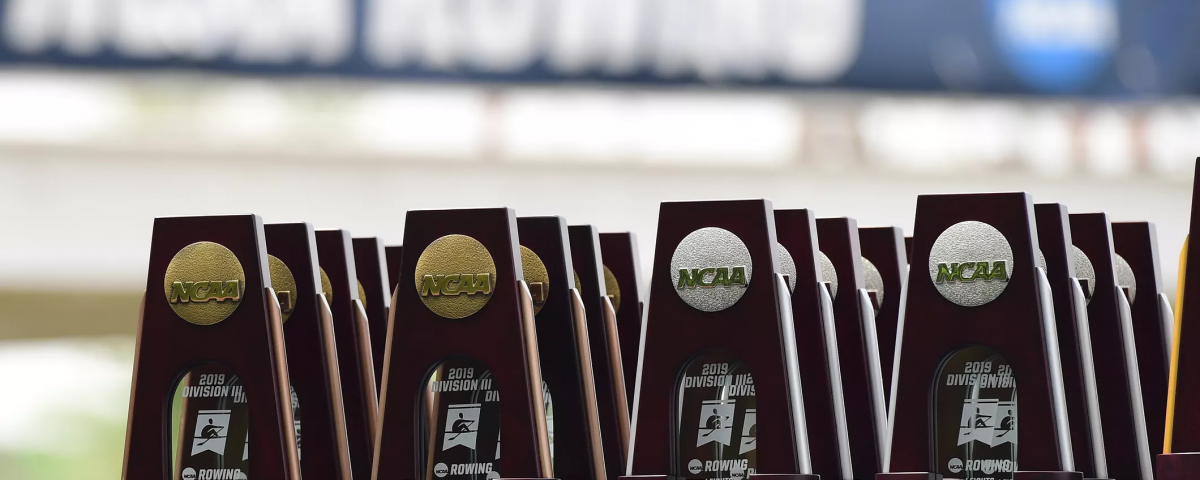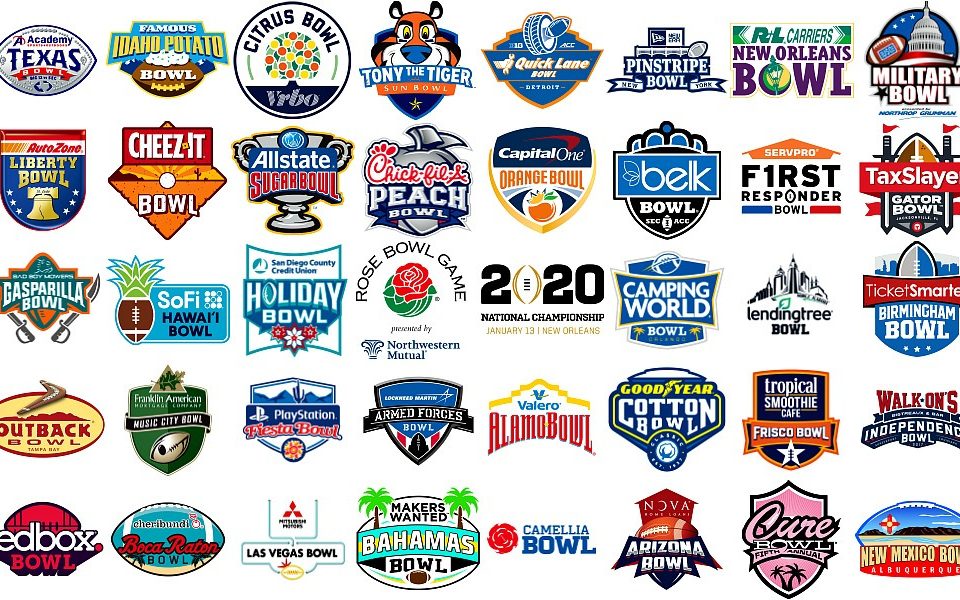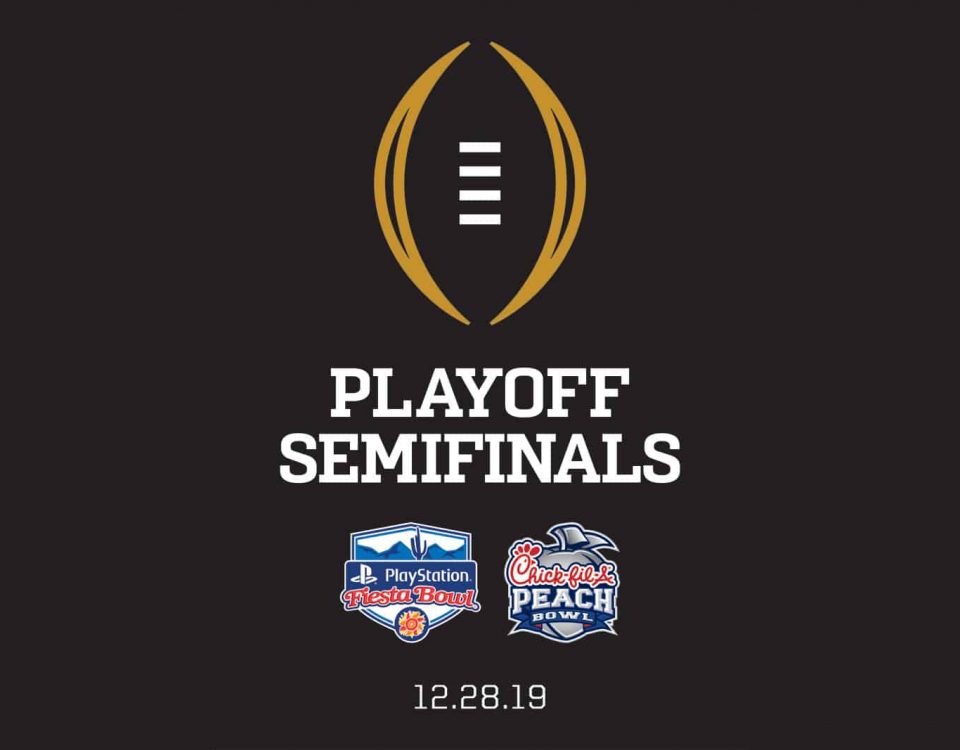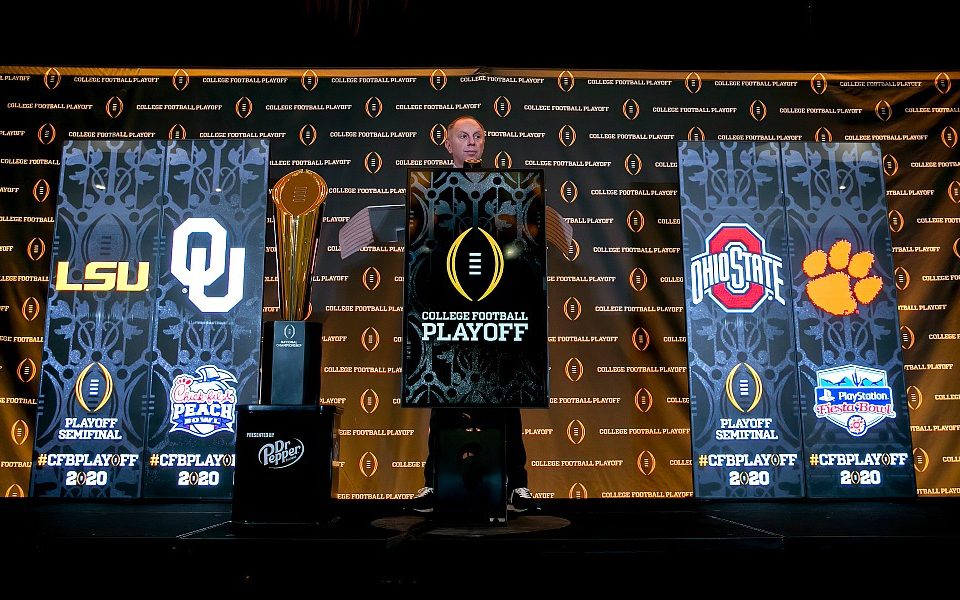
AP Top 25 Week 10
October 29, 2019
Week 10 Picks
October 31, 2019NCAA History On Paying Players
The NCAA is going to start paying college athletes. The NCAA, a billion-dollar entity that has been described as the equivalent of “slave labor” by former athletes and critics alike, has decided to change their stance on paying athletes after a big push from state lawmakers. Paying players has long been a topic of debate for college sports fans, and the chatter only looks to grow after this. We look forward to discussing this change with some of the players at the NCAA Championship game, which you can win tickets to right here on The Brag House (In case you didn't know!)
Landmark Change
In what many are calling a landmark move for college sports, the NCAA has opened the door for college athletes to profit off their name and likeness, if they so chose. This news comes a month after California governor Gavin Newsome, with support from high profile athletes like NBA superstar Lebron James, passed a law that would ban state schools from preventing student-athletes from making money and also allowing them to hire agents while still in school.
NCAA To Start Paying Players
The NCAA initially balked at the idea but have since changed their tune after other states like New York, Illinois, and Florida also laid out similar plans for their respective states to pay players. NCAA president Mark Emmert has softened his stance, as well as Michael Drake, the NCAA board chair and also the president of Ohio University. Drake said the NCAA needed “additional flexibility” for its athletes, however, the parameters of these changes and when they will go into effect have yet to be discussed thoroughly.

NCAA Paying College Athletes Is Common Sense
The NCAA makes around $1 billion in revenue per year but has never paid any of their athletes. Allowing a player to profit off their likeness is the same thing former UCLA basketball star Ed O Bannon filed in a suit against the NCAA a few years ago, after seeing a child play college basketball and noticed his digital avatar. He was never paid for it, but ultimately won the suit. Since then, EA sports has stopped producing college sports games.
What This Means
What this could mean for college sports is a web of intricacies that the NCAA will have to navigate and figure out. For example, a highly touted college player such as former Duke basketball superstar Zion Williamson would be allowed to be compensated for every time someone used his name for profit. ESPN regularly showed Duke games and he Zion as a marquee name every night on sports center, however, the first overall pick in the draft saw zero return from that.
NCAA Stance In The Past
Former NFL player and USC icon Reggie Bush was also in a similar situation a decade ago. Arguably the most electrifying athlete in LA at the time not named Kobe Bryant, Bush was stripped of his Heisman award and USC had to vacate their national championship win because of money the running back received from boosters, the same boosters that could likely find themselves shelling out money for potential recruits by giving them money to appear on a billboard or a commercial. If it sounds a bit like a money laundering scam to get top players to join a school, it’s because it probably is.
Colleges Paying College Athletes Is Common Sense
There have been a number of schools that have been subjected to fines and probation due to illegally recruiting players and the potential for that number to grow is likely. Take for instance a school like SMU, which in the past received “the death penalty” for illegally recruiting players in the 80s. The school is a privately owned institution in Dallas, and there is no shortage of money coming in from boosters. If a top-rated QB from Texas wanted to go to, say, Oklahoma to play college ball, what’s stopping a Dallas based booster from offering the kid $1 million to appear in a law commercial under the caveat that they attend SMU?
What This Means
Technically, that’s possible and it’s also technically legal under these new guidelines. Whether or not each school adheres to it or uses it as a recruiting strategy may not be the case. Duke University, while privately owned and prestigious in its academics as well as basketball, could still attract a top player just by having legendary coach Mike Krzyzewski show up at their house. However, a smaller state school like NC State could find a way to lure one of those recruits to play for them if say there was a paycheck attached to the application.
College Athletes Getting Paid Now Means Safety In Their Future
However, not every athlete is as popular as Zion or Reggie Bush. Some might be regional stars like LSU QB Joe Burrow or Wisconsin RB Jonathon Taylor, who could get paid a nice sum to appear in a car dealership commercial that is only shown in their state. Not every player on the team will get paid, which is something of a compromise considering the initial push was to pay all of the players something along the lines of a minimum wage. It’s also not just football and basketball that will be affected; swimmers, golfers, tennis players all can be paid if someone is willing to write the check. It may not be equal, but it’s fair and what better way to teach that than in college?

What We Think
It’s yet to be seen how the NCAA will regulate these payments — perhaps a cap on how much a player can make at a time — or the ramifications it will have on a team’s recruiting process, but it is a step in the right direction in terms of spreading the wealth among college sports. The NCAA has been criticized in the past for profiting off players for their own personal gain, especially in football and basketball, but with bipartisan support from many states — and with a potential push to have their case heard in Congress — the governing body of college sports had no choice but to soften their stance on the matter.
What This Means
Either way you slice the pie, someone is getting a piece. It may not be the same size, but at least the NCAA is allowing their athletes to sit at the table and have one… and it’s about damn time. Now for the next order of business… can we give Reggie Bush his Heisman trophy back, please? The man would’ve made more money at USC if he were allowed to! The NCAA is going to start paying college players and no matter how you carve it, this is good for the players.
We Will Be Sure To Update This Article As The Story Progresses

NCAA History On Paying Players
The NCAA is going to start paying college athletes. The NCAA, a billion-dollar entity that has been described as the equivalent of “slave labor” by former athletes and critics alike, has decided to change their stance on paying athletes after a big push from state lawmakers. Paying players has long been a topic of debate for college sports fans, and the chatter only looks to grow after this. We look forward to discussing this change with some of the players at the NCAA Championship game, which you can win tickets to right here on The Brag House (In case you didn\'t know!)
Landmark Change
In what many are calling a landmark move for college sports, the NCAA has opened the door for college athletes to profit off their name and likeness, if they so chose. This news comes a month after California governor Gavin Newsome, with support from high profile athletes like NBA superstar Lebron James, passed a law that would ban state schools from preventing student-athletes from making money and also allowing them to hire agents while still in school.
NCAA To Start Paying Players
The NCAA initially balked at the idea but have since changed their tune after other states like New York, Illinois, and Florida also laid out similar plans for their respective states to pay players. NCAA president Mark Emmert has softened his stance, as well as Michael Drake, the NCAA board chair and also the president of Ohio University. Drake said the NCAA needed “additional flexibility” for its athletes, however, the parameters of these changes and when they will go into effect have yet to be discussed thoroughly.
no-repeat;left top;;
auto

NCAA Paying College Athletes Is Common Sense
The NCAA makes around $1 billion in revenue per year but has never paid any of their athletes. Allowing a player to profit off their likeness is the same thing former UCLA basketball star Ed O Bannon filed in a suit against the NCAA a few years ago, after seeing a child play college basketball and noticed his digital avatar. He was never paid for it, but ultimately won the suit. Since then, EA sports has stopped producing college sports games.
What This Means
What this could mean for college sports is a web of intricacies that the NCAA will have to navigate and figure out. For example, a highly touted college player such as former Duke basketball superstar Zion Williamson would be allowed to be compensated for every time someone used his name for profit. ESPN regularly showed Duke games and he Zion as a marquee name every night on sports center, however, the first overall pick in the draft saw zero return from that.
NCAA Stance In The Past
Former NFL player and USC icon Reggie Bush was also in a similar situation a decade ago. Arguably the most electrifying athlete in LA at the time not named Kobe Bryant, Bush was stripped of his Heisman award and USC had to vacate their national championship win because of money the running back received from boosters, the same boosters that could likely find themselves shelling out money for potential recruits by giving them money to appear on a billboard or a commercial. If it sounds a bit like a money laundering scam to get top players to join a school, it’s because it probably is.
no-repeat;left top;;
auto

http://3.19.239.63/early-invite/
Colleges Paying College Athletes Is Common Sense
There have been a number of schools that have been subjected to fines and probation due to illegally recruiting players and the potential for that number to grow is likely. Take for instance a school like SMU, which in the past received “the death penalty” for illegally recruiting players in the 80s. The school is a privately owned institution in Dallas, and there is no shortage of money coming in from boosters. If a top-rated QB from Texas wanted to go to, say, Oklahoma to play college ball, what’s stopping a Dallas based booster from offering the kid $1 million to appear in a law commercial under the caveat that they attend SMU?
What This Means
Technically, that’s possible and it’s also technically legal under these new guidelines. Whether or not each school adheres to it or uses it as a recruiting strategy may not be the case. Duke University, while privately owned and prestigious in its academics as well as basketball, could still attract a top player just by having legendary coach Mike Krzyzewski show up at their house. However, a smaller state school like NC State could find a way to lure one of those recruits to play for them if say there was a paycheck attached to the application.
College Athletes Getting Paid Now Means Safety In Their Future
However, not every athlete is as popular as Zion or Reggie Bush. Some might be regional stars like LSU QB Joe Burrow or Wisconsin RB Jonathon Taylor, who could get paid a nice sum to appear in a car dealership commercial that is only shown in their state. Not every player on the team will get paid, which is something of a compromise considering the initial push was to pay all of the players something along the lines of a minimum wage. It’s also not just football and basketball that will be affected; swimmers, golfers, tennis players all can be paid if someone is willing to write the check. It may not be equal, but it’s fair and what better way to teach that than in college?
no-repeat;left top;;
auto

What We Think
It’s yet to be seen how the NCAA will regulate these payments — perhaps a cap on how much a player can make at a time — or the ramifications it will have on a team’s recruiting process, but it is a step in the right direction in terms of spreading the wealth among college sports. The NCAA has been criticized in the past for profiting off players for their own personal gain, especially in football and basketball, but with bipartisan support from many states — and with a potential push to have their case heard in Congress — the governing body of college sports had no choice but to soften their stance on the matter.
What This Means
Either way you slice the pie, someone is getting a piece. It may not be the same size, but at least the NCAA is allowing their athletes to sit at the table and have one… and it’s about damn time. Now for the next order of business… can we give Reggie Bush his Heisman trophy back, please? The man would’ve made more money at USC if he were allowed to! The NCAA is going to start paying college players and no matter how you carve it, this is good for the players.
We Will Be Sure To Update This Article As The Story Progresses
no-repeat;left top;;
auto






4 Comments
This is awesome!
Great article! Personally, I think this is a good thing but I think there should be a cap limit to how much a player can make at a certain time, to prevent those “go for broke” stories. Recruiting is going to be interesting though… Won’t see the effects for a couple years but I can’t wait for the ESPN 30 for 30 on this lol
Also, let’s get Reggie his Heisman back! Never should’ve taken it from him in the first place. OJ can keep his but Reggie had to give it up? Ridiculous!
Thank you for clarifying this for me!